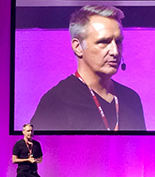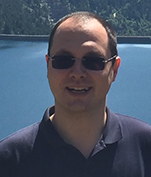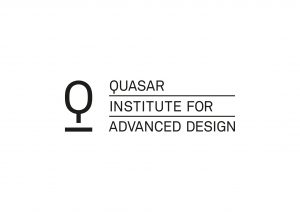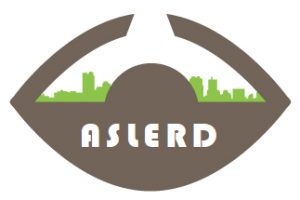
• Ante Runnquist (Nacka municipality – Stockholm – Sweden) – May 22
Ante is an educator specialized in the development of learning environments. His daily work is based on his accumulated experience as a child, student, teacher, headmaster, leader and consultant in educational management. His approach to learning environments is based on the conviction that we need address and understand them from several perspectives: social, cultural, pedagogical, organizational, physical and digital. In order to improve them we need a clear idea of what kind of learning and education we want to promote and then combine all perspectives in efforts to achieve this. In recent years He has been engaged in several projects based on this approach (among which the VITTRA School and Brogårdaskolan, Bjuv Municipality). In his current role as Senior Learning Environment Officer in Nacka municipality outside Stockholm he is responsible for the development of The Learning Quarters, a part of e new city with new schools and environments for some 4000 students in upper secondary and adult education. His primary focus in this is to create strong learning communities that contribute to our society and democracy.

• Daniela Selloni (DESIS Lab – Politecnico di Milano – Italy) May 23
Daniela is a Service Designer, Research Fellow and Adjunct Professor at the School of Design of Politecnico di Milano, where she teaches the Master’s Degree in Product Service Systems Design. She is member of POLIMI DESIS Lab within the Department of Design of Politecnico di Milano, where she works in international and Italian research programmes. Her research interests cover service design and social innovation, focusing on citizen activism, methods and tools for co-design, public services, design for democracy, sharing economy. She is the author of “CoDesign for Public-Interest Services” and “MassiveCodesign”.
Educating the next generation of social innovators
This contribution is about the connection between design research and education in the field of social innovation. In the last years, as researchers within the POLIMI DESIS Lab, we organised the service design studios held within the Master Degree in Product-Service System Design as a part of our action-research projects. These studios, in which we mainly teach service design and co-design methods and tools, were characterised by a strong connection with the local context, including a deep dive in specific neighbourhoods of Milan, activities such as citizen engagement and involvement of important stakeholders, such as the Municipality of Milan. Named “Hacking Public Services”, “Job Design”, “City Service Hubs” and “A resilient city”, these studios represented an opportunity to experiment with students alternative ways of organising the daily life in the city of Milan, simulating within the protected environment of education new possible modalities in which social innovation can occur.

• Mihai Dascalu (University Politehnica of Bucharest – Romania) – May 24
Mihai holds a double PhD with the highest distinctions in Computer Science (UPB) and Educational Sciences (University Grenoble Alpes, France), with his thesis published as book in Springer, Studies in Computational Intelligence. He has extensive experience in national and international research projects with more than 150 published papers. Currently Mihai is an associate professor at UPB, responsible for the courses of Object Oriented Programming, Semantic Web Applications, and Data Mining and Data Warehousing. Complementary to his competencies in NLP, technology-enhanced learning (TEL) and discourse analysis, Mihai holds several professional certifications (e.g. PMP, PMI-RMP, PMI-ACP, CBAP, CISA, C|EH and CISSP) and extensive experience on strategic projects on non-refundable funds (EU, WB, USTDA). Moreover, Mihai has received the distinction ‘IN TEMPORE OPPORTUNO’ in 2013 as the most promising young researcher in UPB, has obtained a Senior Fulbright scholarship in 2015, and holds the US patent # 9734144 B2 ‘Three-Dimensional Latent Semantic Analysis’.
Enhancing learning environments by means of analytics to study models of comprehension
Reading and writing are complex cognitive processes through which learners acquire new information and consolidate prior knowledge. Virtual Learning Environments have started to gain an increasing adoption and the integration of advanced Natural Language Processing techniques greatly facilitates an adequate contextualization and an in-depth analysis of learner text productions, covering multiple layers from lexicons, syntax, semantics, and even discourse structure. Our aim is to introduce comprehensive and multi-faceted text analyses capable of assessing and predicting learner comprehension in a wide range of learning scenarios, involving both reading of new resources, as well as writing different essays or summaries. With regards to reading, we introduce an automated model of comprehension (AMoC) capable of simulating potential ways in which learners conceptualize texts in terms of both text-based information, as well as inferred knowledge modeled using different semantic models. While relating to writing tasks, we present a multi-dimensional and multi-lingual textual complexity model that can be easily customized to assess writing quality in various scenarios. As a particular use case, serious games are being employed more and more frequently, and our aim is to integrate NLP technologies in order to enhance the learning process through games that require text productions and are centered on vocabulary acquisition, comprehension and collaboration.
SLERD 2019 has been supported by:





